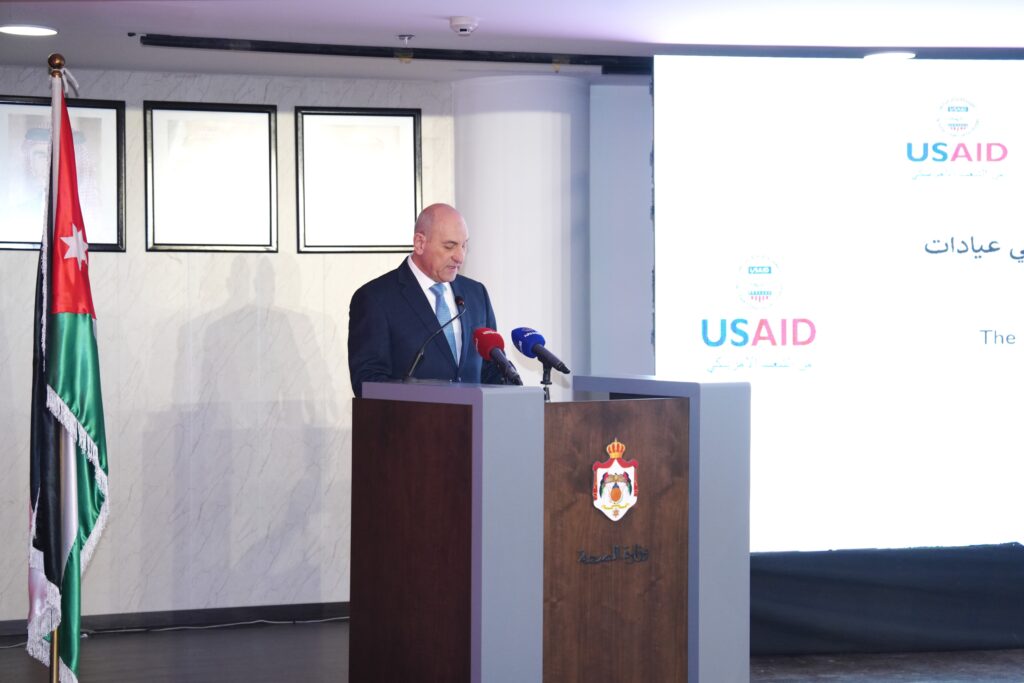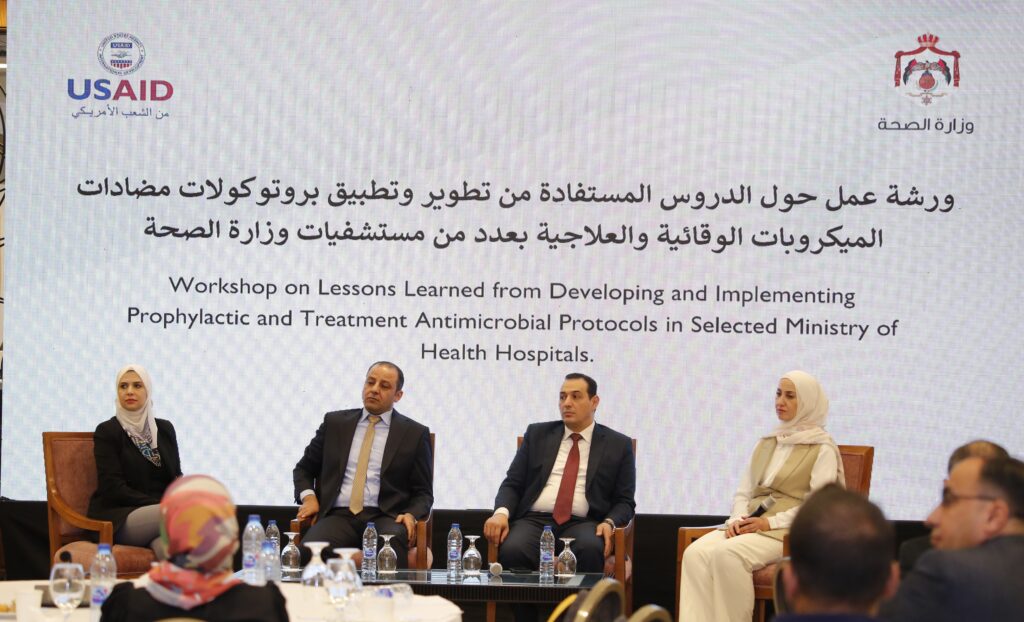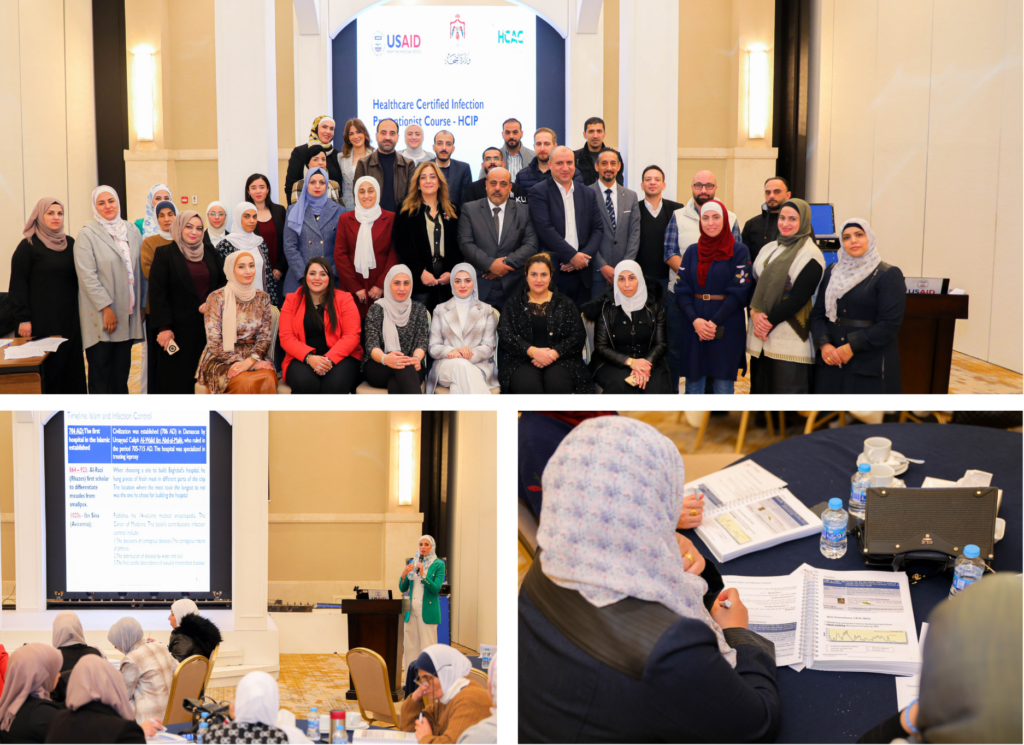Country Landscape and MTaPS’ Support
Jordan announced its first case of COVID-19 in March 2020 and began a comprehensive national response, including a complete lockdown. With strong public and private health care sectors, Jordan is considered a leading destination for medical tourism in the Middle East region. However, Jordan faced a surge in the number of COVID-19 cases and number of deaths beginning in September 2020. USAID MTaPS supported the Ministry of Health (MOH) to develop the country's COVID-19 infection prevention and control (IPC) capacity. Collaborating with international agencies, such as the World Health Organization and Centers for Disease Control and Prevention, MTaPS integrated their guidance and tools on COVID-19 IPC and emergency supply chain management to strengthen government response systems and provided IPC training for both public- and private-sector hospitals.
Currently, MTaPS is supporting MOH on its national vaccination campaign to immunize its population against COVID-19. Close to 44.5% of its people are fully vaccinated against COVID-19 as of July 2022. MTaPS is providing technical assistance to MOH’s COVID-19 vaccines safety surveillance efforts to determine prevalence of adverse events following immunization (AEFIs) and enable stakeholders to monitor outcomes and maintain the trust of its population in the vaccines—critical to achieving national immunization goals and ultimately, reducing COVID-19 morbidity and mortality in Jordan.
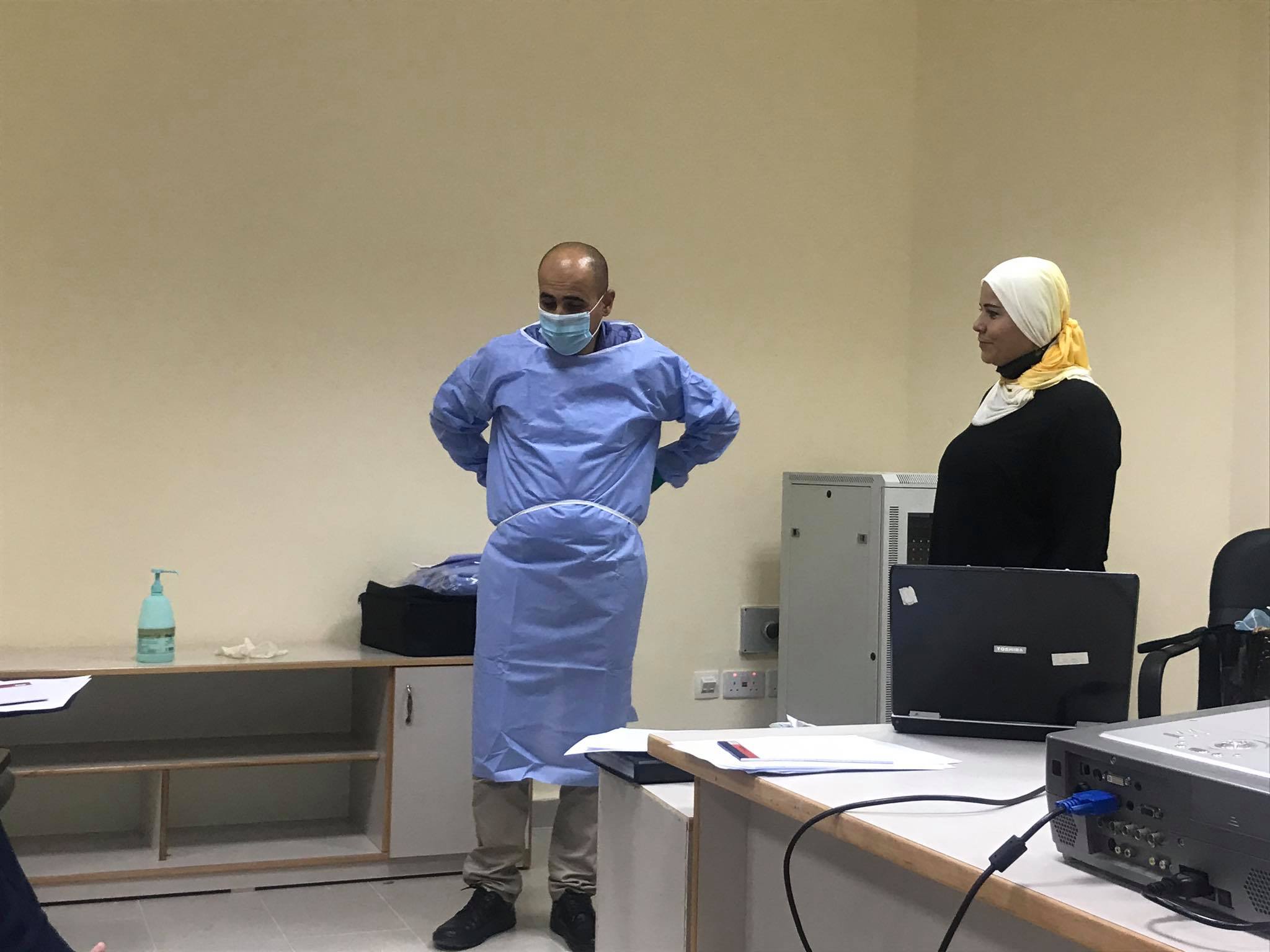
MTaPS’ combined strategy of training on early recognition of COVID-19 cases, containing transmission, and the optimal use of PPE according to international recommendations—along with tactics to mitigate PPE shortages at hospitals—helped keep health care workers safe and available to manage the surge in COVID-19 patients.
Photo credit: MTaPS Jordan
Select Highlights
Infection Prevention and Control (IPC)
- Developed national COVID-19 IPC guidelines, training materials, and e-learning modules on critical COVID-related areas such as early recognition of COVID-19 cases, IPC precautions, PPE donning and doffing, triage, managing surge in patients, and health care waste management
- Used blended (virtual and face-to-face) training approach to reach health care workers at 36 private, public, and Royal Medical Service hospitals with COVID-19 IPC training (read more)
- Rolled out COVID-19 response action plan for Al Bashir Hospital, Jordan’s busiest public hospital and the main COVID-19 treatment hub, strengthening the government’s focal point for pandemic response
- Improved IPC standards and compliance at MTaPS-supported hospitals using innovative IPC scorecards
Indicators as of September 2023

1322
Number of workers trained on
COVID-19-related IPC and/or WASH

37
Number of health facilities supported for IPC and/or WASH for COVID-19

8
Number of COVID-19 IPC e-learning modules developed
Emergency Supply Chain Management
- Supported development of emergency supply chain reporting system, transitioned to the MOH
- Built capacity of staff across hospitals on emergency supply chain management through in-person and virtual training
- Helped navigate continuous PPE commodities availability to ensure safety of health care workers by:
- Introducing mitigation strategies at Al Bashir Hospital, later recommended for use in hospitals across the country
- Supporting direct procurement of key PPE commodities, such as N95 respirators and gloves
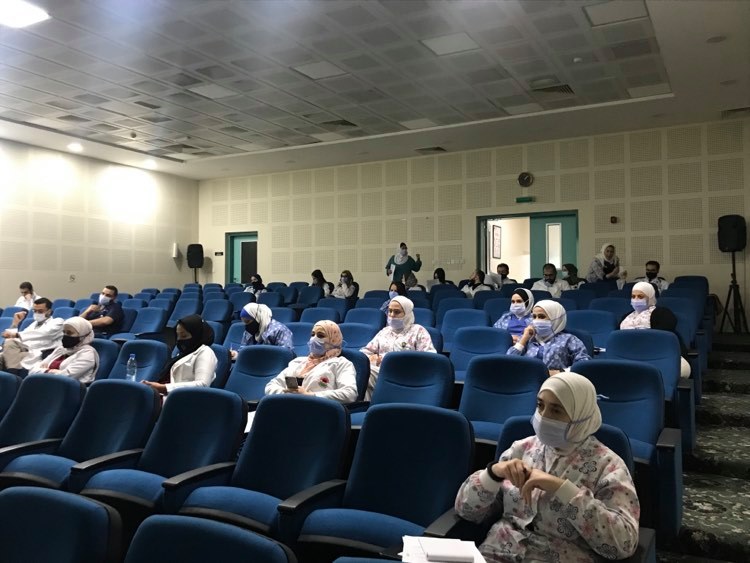
Close to 740 women health care workers were trained on COVID-19 IPC across 36 hospitals. Photo credit: MTaPS Jordan
COVID-19 Vaccine Pharmacovigilance
- Supported national COVID-19 vaccines safety surveillance program by analyzing AEFI reports from a pool of more than 400,000 vaccine recipients and providing system strengthening recommendations—findings of >99% of side effects to be non-serious and comparable with international vaccine safety studies, combined with messaging, informed the MOH campaign to enhance public confidence in COVID-19 vaccines
- Provided systematic reviews of the latest technical guidance and research on COVID-19 vaccine pharmacovigilance and related topics for a diverse group of senior government officials to inform their decision making
- Trained staff at Pharmacy and Clinical Pharmacy Directorate on AEFI data management and analysis, building their vaccine surveillance capacity
- Helped advance reform of Jordan’s vaccine procurement practices by implementing five regulatory reform recommendations from the National Vaccines Procurement Modernization Committee—a USAID conditions precedent in the country
Partners include:
- Ministry of Health
- Jordan Food and Drug Administration
- Pharmacy and Clinical Pharmacy Directorate
- U.S. Centers for Disease Control and Prevention
- WHO
